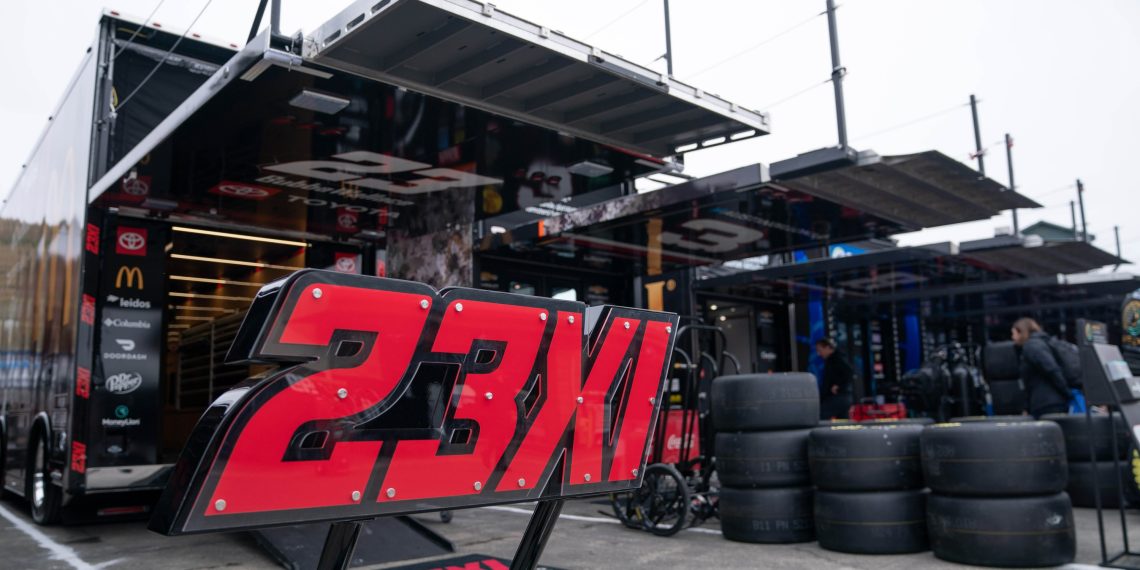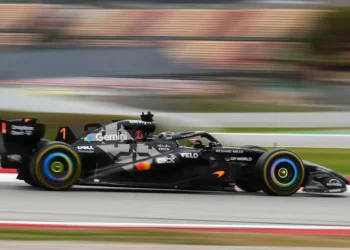The NASCAR community is abuzz with mixed emotions after the recent escalation in the ongoing “charter wars.” The conflict hit its peak last Wednesday when 23XI Racing, co-owned by Michael Jordan, and Bob Jenkins’ Front Row Motorsports (FRM) filed a federal anti-trust lawsuit against NASCAR and its CEO, Jim France. The lawsuit, which accuses NASCAR of monopolistic practices, has divided fans, teams, and stakeholders in the sport.
The central issue behind the lawsuit revolves around NASCAR’s offer of a new charter deal that would span from 2025 to 2031. 23XI and FRM were the only two teams that refused to sign the deal, citing unfair terms. The deal would secure teams’ full-time participation and guarantee revenue, but according to the two teams, it was a “take-it-or-leave-it” offer with no room for negotiation, leading them to take drastic legal action.
Senior NASCAR journalist Jordan Bianchi, in his latest episode of The Teardown podcast, explained why this lawsuit was the last resort for 23XI and FRM. Bianchi highlighted that filing the lawsuit was a “Hail Mary” move from the teams, who felt they had no other options left.
“What is the only thing we [23XI, FRM] can do? And that is go to court and it’s to go convince 12 people on a jury that this is a monopoly and have them decide what the penalty is. I don’t see what else they could do.”
Bianchi further explained that by refusing to sign the deal, both teams are at risk of losing their guaranteed spots in the championship for the 2025 season. Without a charter, 23XI and FRM would be forced to field open entries, which would cost them millions in lost revenue. This left the teams with little choice but to pursue legal action, hoping to secure a better outcome.
“I mean they can continue to run as an open car, which doesn’t do anything because you’re going to lose millions of dollars. So, this was the play. This is the Hail Mary, this is it. Everything comes down to this. You know, it’s fascinating, and you go through everything.”
One of the key accusations in the lawsuit is that NASCAR is operating as an illegal monopoly. The suit alleges that NASCAR’s control over the sport, particularly through its ownership of the ARCA series and various racetracks, is part of a broader strategy to stifle competition. Bianchi acknowledged that this point could be damaging to NASCAR, especially if presented the right way in court.
“A lot of the tracks they bought, if you spin it the right way in court and you say to a jury, ‘Well they bought all these tracks and they brought them in-house so they can do whatever they want.’ And you can show, hey, we took a date away from this track, and we took a date away from this track and they’re dictating all these things… they look at this, the totality of it and like, oh they did X, Y, and Z, yeah I can see that.”
The lawsuit has triggered mixed reactions within the NASCAR community. While some fans and insiders applaud 23XI and FRM for standing up against what they perceive as unfair practices, others worry about the long-term consequences for the sport. Many fear that the legal battle could drag on for years, causing significant damage to NASCAR’s reputation and destabilizing the relationship between the teams and the governing body.
Bianchi’s analysis underscores that while 23XI and FRM have valid points in their favor, the lawsuit has the potential to be a drawn-out, ugly legal battle that could have serious ramifications for everyone involved. Whether the teams win or lose, the impact of the lawsuit will likely shape NASCAR’s future in significant ways.
In the meantime, fans and stakeholders alike will be watching closely as the legal drama unfolds, with the fate of NASCAR’s charter system and the balance of power in the sport hanging in the balance.










